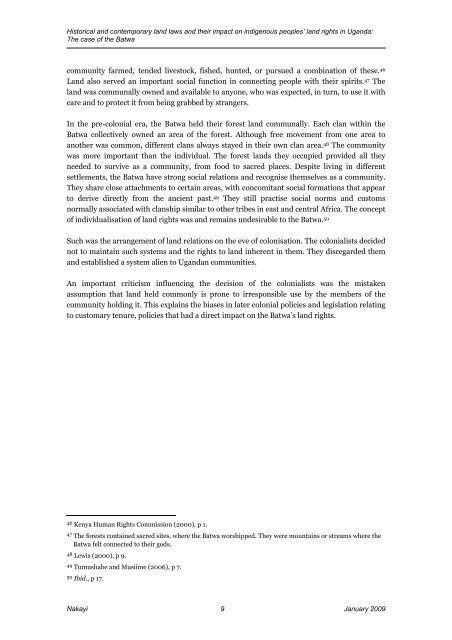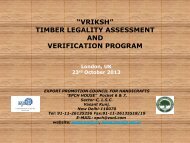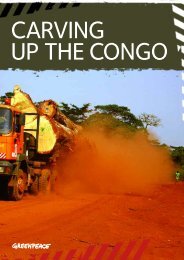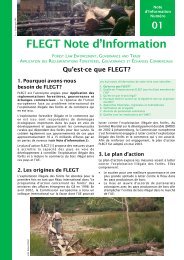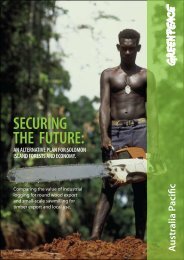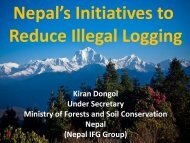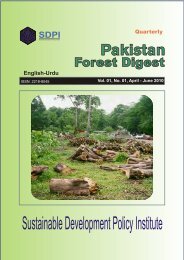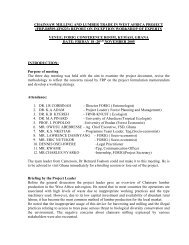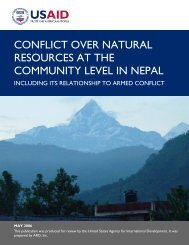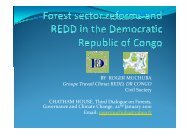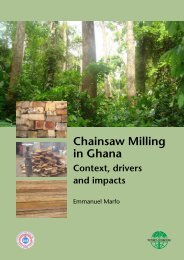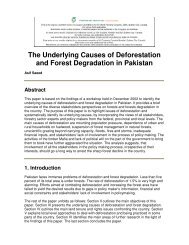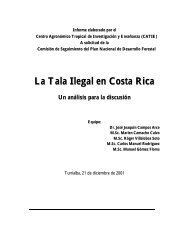download document - Rights and Resources Initiative
download document - Rights and Resources Initiative
download document - Rights and Resources Initiative
- No tags were found...
You also want an ePaper? Increase the reach of your titles
YUMPU automatically turns print PDFs into web optimized ePapers that Google loves.
Historical <strong>and</strong> contemporary l<strong>and</strong> laws <strong>and</strong> their impact on indigenous peoples’ l<strong>and</strong> rights in Ug<strong>and</strong>a:The case of the Batwacommunity farmed, tended livestock, fished, hunted, or pursued a combination of these. 46L<strong>and</strong> also served an important social function in connecting people with their spirits. 47 Thel<strong>and</strong> was communally owned <strong>and</strong> available to anyone, who was expected, in turn, to use it withcare <strong>and</strong> to protect it from being grabbed by strangers.In the pre-colonial era, the Batwa held their forest l<strong>and</strong> communally. Each clan within theBatwa collectively owned an area of the forest. Although free movement from one area toanother was common, different clans always stayed in their own clan area. 48 The communitywas more important than the individual. The forest l<strong>and</strong>s they occupied provided all theyneeded to survive as a community, from food to sacred places. Despite living in differentsettlements, the Batwa have strong social relations <strong>and</strong> recognise themselves as a community.They share close attachments to certain areas, with concomitant social formations that appearto derive directly from the ancient past. 49 They still practise social norms <strong>and</strong> customsnormally associated with clanship similar to other tribes in east <strong>and</strong> central Africa. The conceptof individualisation of l<strong>and</strong> rights was <strong>and</strong> remains undesirable to the Batwa. 50Such was the arrangement of l<strong>and</strong> relations on the eve of colonisation. The colonialists decidednot to maintain such systems <strong>and</strong> the rights to l<strong>and</strong> inherent in them. They disregarded them<strong>and</strong> established a system alien to Ug<strong>and</strong>an communities.An important criticism influencing the decision of the colonialists was the mistakenassumption that l<strong>and</strong> held commonly is prone to irresponsible use by the members of thecommunity holding it. This explains the biases in later colonial policies <strong>and</strong> legislation relatingto customary tenure, policies that had a direct impact on the Batwa’s l<strong>and</strong> rights.46 Kenya Human <strong>Rights</strong> Commission (2000), p 1.47 The forests contained sacred sites, where the Batwa worshipped. They were mountains or streams where theBatwa felt connected to their gods.48 Lewis (2000), p 9.49 Tumushabe <strong>and</strong> Musiime (2006), p 7.50 Ibid., p 17.Nakayi 9January 2009


